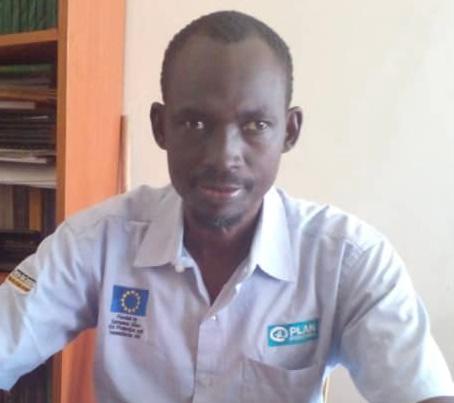Abacha Ahmed Ibrahim is one of his country’s leading advocates for the rights of Persons with Disabilities (PWDs).
Born 34 years ago into a family of Eight, in Kajokeji County, East of Juba, the Capital of South Sudan, Abacha ’s passion for human rights was born out of grim personal experience. At birth, he was immediately neglected by his father on discovering that the little infant was visually impaired.
“My own father denied me access to education because he considered my disability a kind of misfortune brought to him by my mother,” he says.
Abacha Ahmed Ibrahim Tweet
Consequently, Abacha had to rely on his mother to fend for him through school, an experience that brought him face-face with the deep-seated and far-reaching social stigma against PWDs prevalent in South Sudan society and institutions.
“This (the stigma) was my earliest motivation – by the time I was getting done with secondary school, I was determined to pursue a career in human rights, particularly the rights of PWDs, to show that they too are people like others, he says.
Abacha Ahmed Ibrahim Tweet
Today, Abacha works as a Senior Program Manager at Action for Community Education, one of the leading NGOs in Juba, where he manages education projects and human rights advocacy. Here, for the last 10 years, he has been organising people into local group focus discussions and community dialogues as a way of creating civic consciousness and creating social awareness about the importance of education and the human rights, including the rights of PWDs.
documented over 100 cases of missing persons, and helped locate about 60, from prisons to hospitals. Among these, at least five were found dead in city morgues.
“We mobilise all people including PWDs to participate in these discussions. That way, people are able to appreciate that no matter one’s physical ability, or disability, we all are human beings with common needs and aspirations. This contributes to eliminating stigma against PWDs,” he says.
Abacha Ahmed Ibrahim Tweet
Like in many other countries around the region, Abacha notes that PWDs in South Sudan continue to face challenges, from poorly designed buildings with neither rumps nor lifts, no parking spaces designated to PWDs, to insufficient social welfare programs designed to uplift PWDs from poverty.
Things are made even more complicated by South Sudan’s history with political conflict.
“Working in the field of human rights in a country recovering from a civil war is not easy. There is a lot of suspicion, and it is difficult to pursue accountability. Oftentimes, we’re denied access to accountability institutions, we face threats and intimidation. In one such incident, I even received a death threat from one of our security agencies following an opinion I wrote in the press criticizing the human rights abuses in the country,” Abacha observes.
Abacha Ahmed Ibrahim Tweet
Still, he is optimistic of better days ahead for human rights defenders and PWDs
“Recognition of persons with disability, community mindset and perception attitudes are gradually changing towards PWDs. The enactment of inclusive policies like the National Inclusive Education Policy 2014 and the South Sudan National Disability Inclusion Policy 2013 also shows that the authorities that be recognise the existence of an issue that needs to be addressed,” he says.
Abacha Ahmed Ibrahim Tweet
There is still work to be done though. Abacha notes that there is need to among others ensure that PWDs participate in identifying barriers that impede their access, involve them in planning, designing, and implementing town building plans and community programs, include PWDs and their caregivers in community decision making structures and processes, and finally, to create a nationwide corporate environment with the right business strategy and attitude to recruit, hire, retain and advance the careers of PWDs.
“That is our next frontier,” he says.
Abacha Ahmed Ibrahim Tweet

